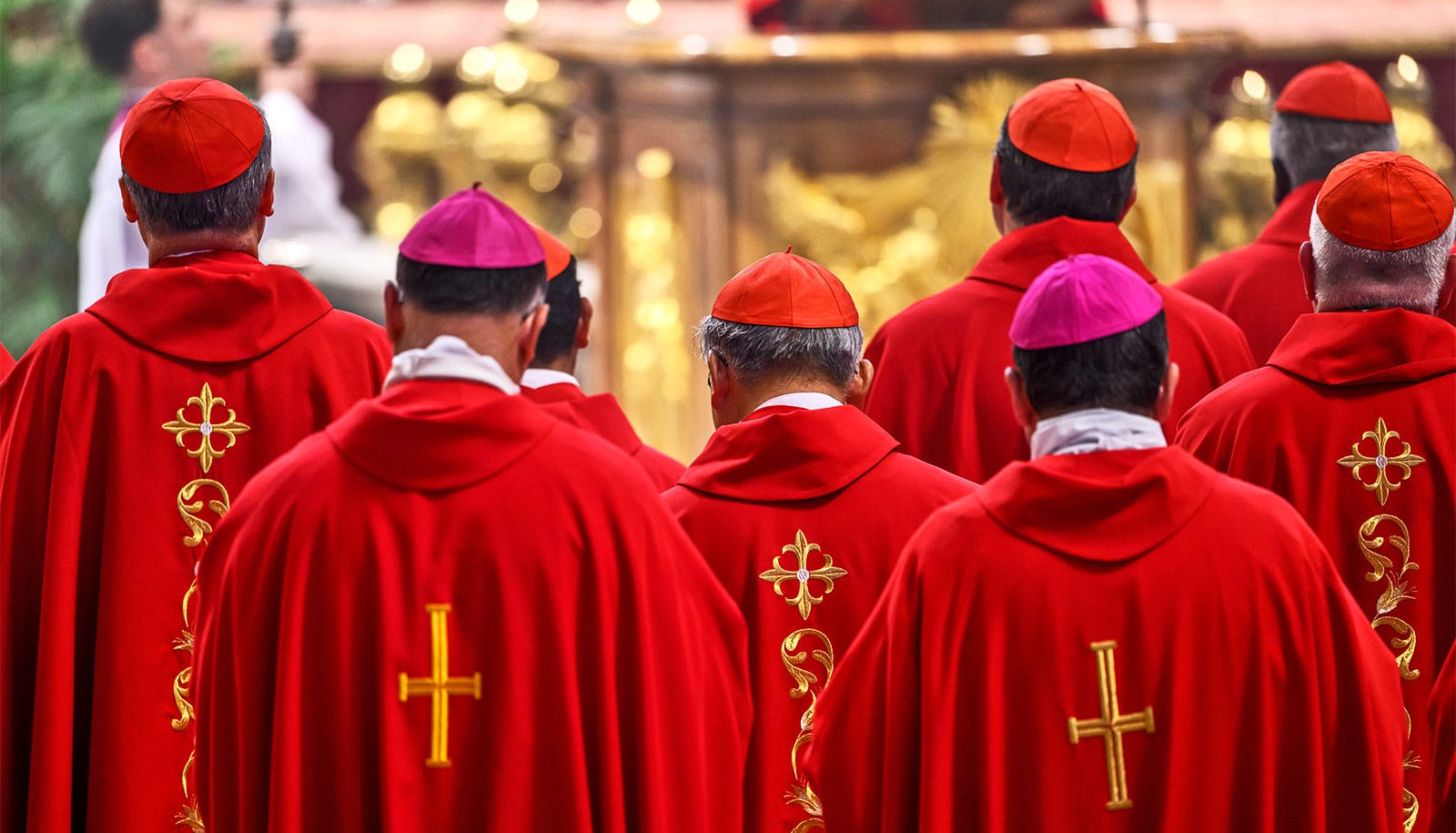Psychologists have used a new technique to construct a composite image of what a sample of 511 American Christians think God looks like.
Participants in the study saw hundreds of randomly varying face-pairs and selected which face from each pair appeared more like how they imagined God to appear. By combining all the selected faces, the researchers could assemble a composite “face of God” that reflected how each person imagined God to appear.

The results were both surprising and revealing. From Michelangelo to Monty Python, illustrations of God have nearly always shown him as an old and august white-bearded Caucasian man. But the researchers found that many Christians saw God as younger, more feminine, and less Caucasian that popular culture suggests.
“…people believe in a God who not only thinks like them, but also looks like them.”
In fact, people’s perceptions of God tended to rely partly on their political affiliation. Liberals tended to see God as more feminine, younger, and more loving than conservatives. Conservatives also saw God as more Caucasian and more powerful than liberals do.
“These biases might have stemmed from the type of societies that liberals and conservatives want,” suggests Joshua Conrad Jackson, the study’s lead author and a graduate student at the University of North Carolina at Chapel Hill.
“Past research shows that conservatives are more motivated than liberals to live in a well-ordered society, one that would be best regulated by a powerful God. On the other hand, liberals are more motivated to live in a tolerant society, which would be better regulated by a loving God.”
People’s perceptions also related to their own demographic characteristics. Younger people believed in a younger-looking God. People who reported being more physically attractive also believed in a more physically attractive God. And African Americans believed in a God that looked more African-American than did Caucasians.
“People’s tendency to believe in a God that looks like them is consistent with an egocentric bias,” says psychology professor Kurt Gray, the study’s senior author. “People often project their beliefs and traits onto others, and our study shows that God’s appearance is no different—people believe in a God who not only thinks like them, but also looks like them.”
Interestingly, however, people did not show an egocentric bias on the basis of gender. Men and women believed in an equally masculine-looking God.
The research appears the journal PLOS ONE. The Templeton Foundation and National Science Foundation supported the work.
Source: UNC-Chapel Hill



